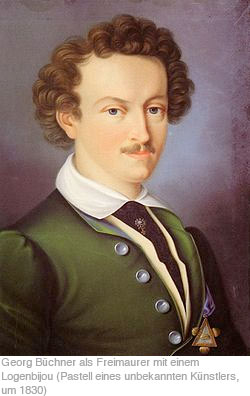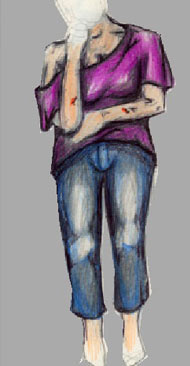MK Woyzeck
at Theatre at UBC:
On the Subject
Adapted from the works of Georg Büchner
Conceived and Directed by Tom Scholte
Frederic Wood Theatre
October 1-10, 2009
7:30 PM
Madness, crime, exploitation. The haunting themes of Georg Büchner's ground-breaking 19th century drama, WOYZECK, are re-examined through a contemporary lens in this original, multi-media, devised performance. Based on a true–life controversial murder trial, Woyzeck follows the story of a poor soldier who submits to army medical experiments in order to supplement his meager income – with disastrous results. The title of this adaptation gives a nod to some of the modern source material utilized. Project MK-ULTRA, or MKULTRA, is the code name for a covert CIA mind-control and chemical interrogation research program, run by the Office of Scientific Intelligence. The program began in the early 1950s, continuing at least through the late 1960s, and it used United States citizens as its test subjects. Project MK-ULTRA involved the surreptitious use of many types of drugs, as well as other methods, to manipulate individual mental states and to alter brain function.
Weeks after he began writing Woyzeck, Büchner died of Typhus, leaving behind a magnificent but fragmented and un–ordered text that has been posthumously "completed" by generations of authors, editors and translators. Tackling Büchner’s unfinished play has become a tradition, almost a rite of passage, among theater artists. It has become one of the most often produced and most influential plays in the German theatre repertory.
"Every man is an abyss, and you get
dizzy looking into it." – Woyzeck
Theatre at UBC Associate Professor Tom Scholte is a nationally recognized actor in the realms of theatre, film, and television. He was a Genie nominee for his work in the feature film LAST WEDDING and a Gemini winner for his performance on DA VINCI’S INQUEST. As a director he was a founding member of Neworld Theatre and is the founder and artistic director of Theatreshop. He has previously taught acting for stage and screen at the Vancouver Film School and Lyric School of Acting. Tom's feature film directing debut, CRIME, received its world premiere at the 2008 Vancouver International Film Festival.
Playwright, medical student, and social revolutionary Georg Büchner died in 1837 at the age of 23, leaving behind a small trove of exceptional dramatic literature. His works anticipated almost all of the major artistic movements of the twentieth century: Naturalism; German Expressionism; Surrealism; Dadaism; Brecht’s dialectical theater, and many others. Both his focus on the working class and his thematically and structurally unresolved writing, which resists a single interpretation, represent turning points in the development of modern art. Büchner’s own generation was not ready for his startling representations of violence and dehumanization, but such themes resonated deeply with twentieth century audiences and his writing continues to be a source of influence throughout modern theater.
"[Woyzeck is] a text that happened to a twenty-three-year-old whose eyelids were cut off at his birth by The Weird Sisters, a text blasted by the fever to orthographic splinters, a structure as it might be created whe"n lead is smelted at New Year’s Eve since the hand is trembling with anticipation of the future...”
- Heiner Müller
Featuring performances by BFA Acting Candidates MariaLuisa Alvarez, Veronica Baylie, Kim Bennett, Ali Glinert, Moneca Lander, Fiona Mongillo and Russell Zishiri. The creative team includes professional artist and Adjunct Professor Patrick Pennefather (Composition/Sound Design) with BFA Design Candidates Chantelle Balfour (Costumes) and Conor Moore (Set/Lighting) and Tim Bellefleur (Stage Management)
MK WOYZECK Sept. 30 – Oct. 10, 2009
Frederic Wood Theatre, 6354 Crescent Rd., UBC Point Grey Campus
Mon. – Sat. at 7:30 p.m. | Opening: Thursday Oct. 1 | Run: Sept. 30 – Oct. 10, 2009
Curtain: Mon. - Sat. at 7:30 p.m. | Tickets: $20/$14/$10 | $6 Preview: Sept. 30 |
Mondays $5 for UBC alumni
Box Office: 604.822.2678 or theatre@interchange.ubc.ca![]()
Georg Büchner
 Büchner died of typhus in 1837 at the age of twenty-three, leaving behind a small but exceptional trove of dramatic literature: Danton’s Death (1835); Leonce and Lena (1836); and Woyzeck (1836).
Büchner died of typhus in 1837 at the age of twenty-three, leaving behind a small but exceptional trove of dramatic literature: Danton’s Death (1835); Leonce and Lena (1836); and Woyzeck (1836).
He also published one novella, Lenz (1836), and a prominent revolutionary political pamphlet, The Hessian Messenger (1835). Stimulated by the then-liberal Enlightenment conception of individual rights and freedoms, Büchner started an underground revolutionary group called the Society for the Rights of Man. Through his work with this group, he wrote an inflammatory pamphlet "The Hessian Courier," which has been called a precursor to the Communist Manifesto. The pamphlet was written to encourage the peasantry to rise up against the oppressive Hessian government.
Büchner’s reputation as a political activist and rising scholar became increasingly widespread as a result, but his talent as a playwright remained unnoticed. At the time Büchner was writing Woyzeck, he was under constant threat of arrest for his revolutionary activities. One of his closest friends and fellow revolutionaries was arrested and tortured to death in prison.
"His own generation was not ready for his startling representations of violence and dehumanization..."
His own generation was not ready for his startling representations of violence and dehumanization, but such themes resonated deeply with twentieth century audiences. Büchner’s writing has since been an ongoing source of influence throughout modern theater.
Although Büchner's primary training was in zoology and comparative anatomy, he is remembered for writing Woyzeck, a piece which never seems to lose its edge and resonance.
Director's Note
While I may have taken the extreme liberty of adapting Georg Büchner’s timeless masterpiece, Woyzeck, I remain well aware that no words of mine could ever come close to expressing the anguished ruminations at the play’s core as well as those penned by the author himself in an oft-quoted letter to his fiancée: “I felt as though utterly crushed by the hideous fatalism of history. I find in human nature a terrible sameness, in human circumstances an ineluctable violence vouchsafed to all and to none. Individuals but froth on the waves, greatness a mere coincidence, the mastery of geniuses a dance of puppets, a ridiculous struggle against an iron law that can at best be understood but never mastered… ‘Must’ is one of those words by which mankind was damned from the very beginning. The saying, ‘It must needs be that offences come, but woe to that man by whom the offence cometh’, is horrifying. What is it in man that lies, murders, steals?” It was over fifteen years ago that the inspired and inspiring teaching of UBC’s own distinguished Professor Emeritus of Theatre, Dr. Errol Durbach, first ignited in me a burning obsession with Büchner’sWoyzeck that has continued to smolder to this day. It is to him that I dedicate my work on this production.
Tom Scholte
Director of MK-WOYZECK
Assistant Professor
